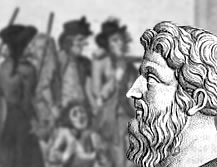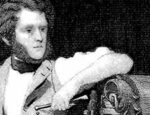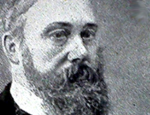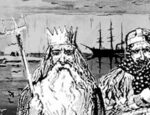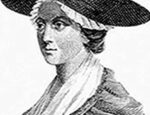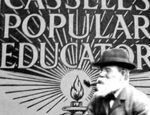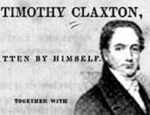Description
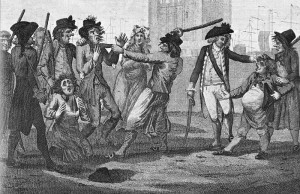 Sing along to the life of Robert Scott, the skilled carpenter and poet whose fortunes were turned upside down by the onset of the Seven Years War (1756-1763). Hostilities with France thwarted the intelligent young man’s plans of further education and becoming a lawyer. After a sound education in his hometown of Falkland, Fife, under the tutelage of a Catholic schoolmaster named John Coldstream, who – among other things – taught his pupils the Latin language, Scott dismayed his friends by abandoning his legal ambitions to take up the tools of the carpenter’s trade:
Sing along to the life of Robert Scott, the skilled carpenter and poet whose fortunes were turned upside down by the onset of the Seven Years War (1756-1763). Hostilities with France thwarted the intelligent young man’s plans of further education and becoming a lawyer. After a sound education in his hometown of Falkland, Fife, under the tutelage of a Catholic schoolmaster named John Coldstream, who – among other things – taught his pupils the Latin language, Scott dismayed his friends by abandoning his legal ambitions to take up the tools of the carpenter’s trade:
About that time, when perverse France,
Against Great Britain did advance,
And by her treach’rous tricks and schemes,
Made Scotia bleed thro’ all her veins;
When nought was heard but treason, treason,
And nothing seen but dire rebellion.
These awful scenes soon stopped my plan;
instead of which I chose a plane.
Tho’ friends dislik’d I should be bred
To a laborious working trade,
A wooden trade, to gain my bread.
He apologises in his preface for his rough verse, which he blames partly on the fact that he had had little education and no time, as a carpenter, to hone his poetic craft. When writing about his old schoolmaster in his verse autobiography, The Life of Robert Scott (1801), he recalls:
At other times I did rehearse
In English prose and Latin verse:
Yea sometimes he would well define
How I should scan a Latin line.
Even though he was from a poor family in which both parents were labourers, he was still taught to read and write in English and in Latin. His poetic memoirs themselves, which he hoped would serve as his pension (being too old to work wood at seventy), demonstrate that in his old age he maintained the confidence to wield a Latin line in his own verse. He writes of his former employer:
The man is dead; Muse, let us hum,
Nill de mortuis nisi bonum.
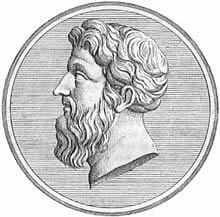 The Latin expression is more or less a combination of ‘don’t speak ill of the dead’ (as it is often translated) and the old adage: ‘if you can’t say something nice, don’t say anything at all’. The phrase, found first in Diogenes Laërtius’s Lives, which literally means, ‘[you must say] nothing about the dead, unless [it is] good’, is usually acknowledged as being coined by one of the seven sages of Greece, a man called Chilon of Sparta who lived in the 6th century BCE. Scott obviously held little regard for his old boss, since – denying himself the option of speaking ill of the dead – he calls upon his Muse to help him hum.
The Latin expression is more or less a combination of ‘don’t speak ill of the dead’ (as it is often translated) and the old adage: ‘if you can’t say something nice, don’t say anything at all’. The phrase, found first in Diogenes Laërtius’s Lives, which literally means, ‘[you must say] nothing about the dead, unless [it is] good’, is usually acknowledged as being coined by one of the seven sages of Greece, a man called Chilon of Sparta who lived in the 6th century BCE. Scott obviously held little regard for his old boss, since – denying himself the option of speaking ill of the dead – he calls upon his Muse to help him hum.
It may not be immediately obvious why the wars between the European super-powers over the possession of distant colonies would bar an ambitious young man from training to become a lawyer. The problem becomes clearer when Scott describes the war’s effect on the city of Edinburgh:
For those employ’d in naval power,
Impress’d poor tradesmen every hour.
…
Each civil law was now suspended,
Expediency by power pretended.
Men at a loss to speak or meet,
Or walk with freedom on Edinbrough street;
…
Trade at a stand, all crafts do stop;
For workmen now there was no hope;
But fly their country, and their friend,
Or join the army, it to defend.
Not only was the Scottish capital bled dry of funds by the war, which removed the chances of scholarships, it was also simply too dangerous to be a poor young man in the city of Edinburgh. ‘Every hour’, he says, people were spirited away from their friends and families and ‘pressed’ to fight for their nation’s colonial expansion, the benefits of which they would not live to enjoy. Incredibly, it was safer to board a ship, as Scott and his wife eventually did, and sail to the metropolis of London, where a man could at the time ply his trade in relative safety from the unscrupulous press gangs. Years later, when the Revolutionary Wars reinvigorated the need to press soldiers and sailors, Scott’s own son was snatched away and died in battle.

